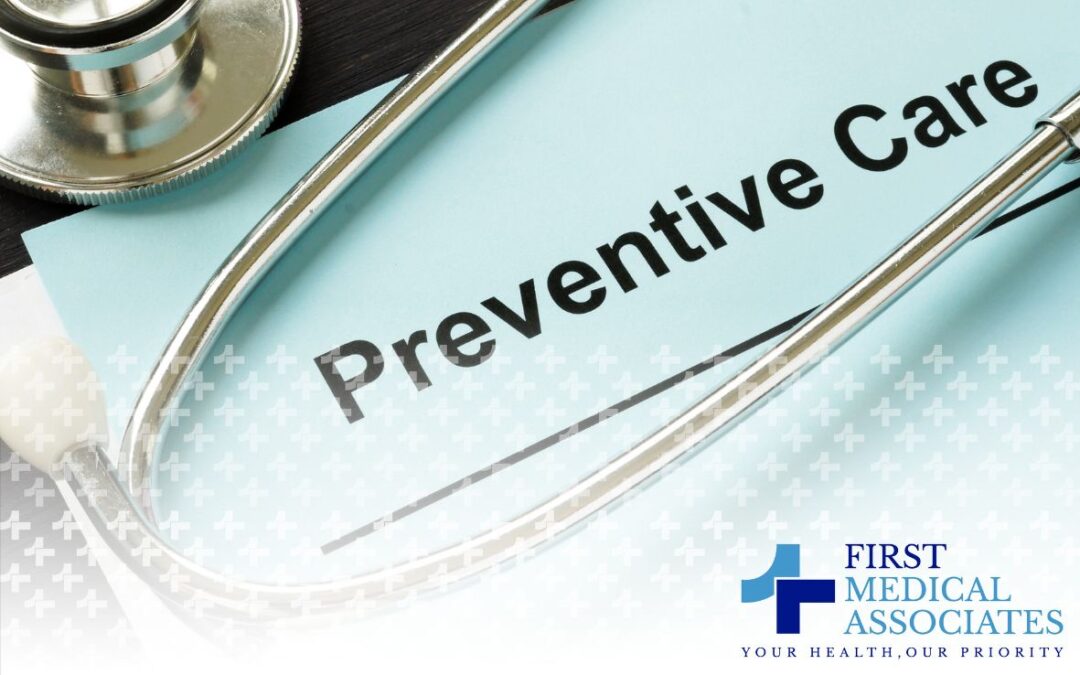Most people only think about going to the doctor when they feel sick or hurt. Unfortunately, they are missing out on the benefits of preventive healthcare. The key to staying healthy is to prevent illness, disease, and other health problems by seeking preventive care. If you see a doctor regularly for routine screenings, they can detect any potential health problems early before they spread or get worse, which means treatment outcomes are better and cheaper.
Less than 8% of adults in the United States receive the recommended preventive care they should. Maryland’s leading primary care physicians at First Medical Associates want to ensure that our patients understand the importance of preventive care. We have put together several tips for our patients to not only understand the benefits, but know when they should visit us, and what care or tests they should have conducted regularly.
Benefits of Preventive Healthcare
- Maintain optimal health
- Prevent illness
- Prevent disease
- Prevent serious health problems
- Detect health problems early
- Improve health outcomes through early detection
- Reduce medical costs through early detection
- Reduce time spent seeking medical care through early detection
- Free under most insurance plans
- Well Visits – annual visits to maintain optimal health, more frequent if needed to monitor chronic conditions
- Screenings – blood pressure, cholesterol, diabetes, heart disease, cancer, and other health issues
- Education and Counseling – balanced eating habits, smoking cessation, and other positive lifestyle choices, as well as managing chronic disease and screening for mental health conditions
- Vaccinations – boosters for childhood vaccines, flu, COVID-19, pneumonia, shingles, etc.
- Well-Child Visits – Every few months for infants and toddlers, annually for children, more frequent if needed to monitor any conditions; includes measurement of growth and developmental milestones, routine immunizations, and screenings
- Vaccinations – polio, hepatitis, DTaP (diphtheria, tetanus, and pertussis), MMR (measles, mumps, and rubella), chickenpox (varicella), flu, etc.
- Screenings – blood tests, vision, behavioral conditions, and health conditions to screen for things like anemia, lead poisoning, autism, depression, developmental delays, etc.

